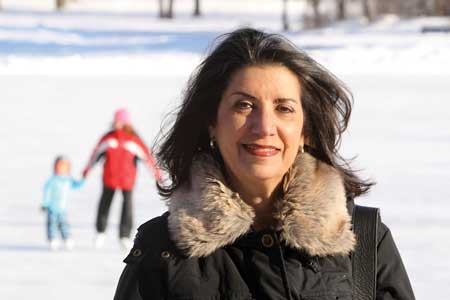
By Neale McDevitt
Have you done some theatre and are looking for new ways to stimulate your creative side? Are you curious as to what goes on in a psychotherapy session? Would you like to help the McGill School of Social Work (SSW) select the very best students for its specialized M.Sc.(A) Couple and Family Therapy Program?
If so, the SSW has an opportunity for you.
The admissions process to the M.Sc.(A) Couple and Family Therapy – a unique program that equips highly competent graduate students with the skills and clinical competencies that will allow them to work with diverse couples and families – includes a case scenario role-play and interview that serves to assess the candidates’ suitability for both the program and the profession.
The SSW is looking for individuals from the McGill community to participate as actors in role-playing the case scenarios, which would be centered around a therapist (the candidate) meeting with a family (our McGill actors).
A number of McGill staffers have already stepped forward and Sharon Bond, Director of the M.Sc.(A) Couple and Family Therapy Program, is impressed. “I’m amazed at the hidden talents of the McGill community,” she says. “We have a lot of people who were, or still are, involved in acting and improv who have volunteered to help. It is heartening to see how receptive people have been – even though it is such a busy time of year for everyone.”
Not surprisingly, the response has been very pan-McGill. “So far we’ve got people from the office of the Dean of Students, Faculty of Arts, the Faculty of Science, the Faculty of Education, Teaching and Learning Services, and Counseling Services,” says Lindsay Flood, Student Affairs Coordinator – M.Sc.(A) Couple & Family Therapy Program. “It’s a very interesting cross-section of the University community.”
Volunteers would be needed from March 16 – 27, during the interview process. Each role-playing scenario will take 15 minutes. In turn, the admissions committee would observe and evaluate the performance of each candidate.
“Many of our applicants have amazing CVs and letters of reference,” says Bond. “But we’re really trying to see how they react on the spot, handle intense conflict and relate to the family as a whole. Are they comfortable in their role as a clinician and a therapist? Are they able to make people feel comfortable? Do they make a connection?
“Some candidates will find this stressful because we put them in a role-play scenario right away,” says Bond. “We don’t expect them to be experts because they are coming here to be trained. But we are looking for people who are self-reflective and open to learning. “
Actors will be asked to volunteer no more than five hours in total over the two-week period and there will be some flexibility in terms of how many hours or days would be committed. Ideally, two or three acting teams or ‘families’ will be formed to help lessen the workload.
A detailed description of the case would be provided in advance to ensure that the actors are aware of who they would be representing (i.e. mother, father, teenaged daughter). There will be a rehearsal on Thursday, March 12, in advance of the interviews. However, the role-play will require some improvisation as each candidate interaction will be different. And, actors won’t necessarily be asked to play typical family members.
“We’re trying to tap into family diversity because the North American family isn’t just a heterosexual one with 2.2 kids, a dog and a cat in the suburbs,” says Bond. “This will be an interesting exercise for everyone – candidates, actors and members of the admissions committee.”
If you are interested in volunteering your time as an actor, contact Lindsay Flood at msca.cft@mcgill.ca or 514-398-3950.
Learn more about the M.Sc.(A) Couple and Family Therapy Program.
